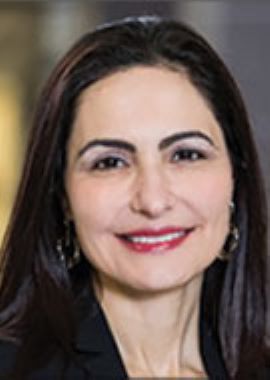RSNA Narrows Gender and Diversity Gaps in Radiology
Images

According to an editorial published in RadioGraphics, the radiology gender gap is decreasing, but there is still work to be done.
In 2022, nearly half of residents and fellows in Accreditation Council for Graduate Medical Education (ACGME)–accredited programs were female. However, less than 27% of active diagnostic radiologists and only 10% of active interventional radiologists are female. Within the 48 largest medical specialty groups, diagnostic radiology ranks 41st and interventional radiology ranks 47th in percentage of female trainees.
To foster a diverse workforce in radiology and to ensure leadership diversity, RSNA established the Committee on Diversity, Equity and Inclusion (CDEI) in 2018. The RSNA CDEI has been instrumental in raising awareness, attracting a broader talent pool and establishing a supportive environment for professional advancement within radiology. The CDEI and RSNA have implemented programs—including dedicated research grants and mentorship initiatives—to provide direct support to underrepresented groups.
“RSNA has made significant strides in the last few years to address the gender and diversity gap in our specialty and within the Society,” said senior author Maureen P. Kohi, MD, Ernest H. Wood Distinguished Professor and Chair in the Department of Radiology at the University of North Carolina at Chapel Hill. “This manuscript serves as a benchmark to show short-term progress.”
RSNA’s efforts have brought about important changes in gender diversity among the Society’s faculty and leadership. In 2023, data reveal a positive trend in RSNA annual meeting faculty gender diversity, with 55% male and 43% female speakers, compared with 67% male and 29% female speakers in 2014. In 2023, the composition of RSNA committee chairs was 58% male and 42% female, compared with 72% male and 28% female in 2014. The composition of the RSNA Research & Education Foundation Board of Trustees was 58% male and 42% female in 2023, compared with 83% male and 17% female in 2014. The composition of the RSNA Board of Directors has varied over the past decade and is currently at 70% male and 30% female.
Although recent advances are promising, the authors emphasize that more work needs to be done. While pathway programs and mentorship/sponsorship are pivotal for DEI advancement, they do not address structural biases in medicine—including discrimination and microaggressions—that contribute to underrepresentation of women and underrepresented in medicine (URiM) groups in radiology and in leadership roles. Unconscious bias affects assessments of peers, trainees and medical students, and can have a significant impact on factors ranging from admissions to leadership appointments.
The authors state that awareness and the use of rational decision-making processes will help reduce the influence of bias, creating a more equitable community. They stress that future initiatives should prioritize inclusivity, collect expanded diversity data, and engage the entire radiology community to create a truly inclusive work environment for all.
“I hope that our collective efforts can create a diverse field matching our patient population,” Dr. Kohi said. “I feel RSNA’s DEI initiatives will make this dream a reality, and I am proud of the RSNA Board for supporting such efforts. I hope that we can continue to build leadership and mentorship opportunities for our URiM trainees and junior faculty and develop the next generation of diverse leaders.”
Editor's Note: Collaborating with Dr. Kohi were Melinda Wang, MD, Charlotte Yong-Hing, MD, Courtney Tomblinson, MD and Judy Yee, MD.
Related Articles
Citation
RSNA Narrows Gender and Diversity Gaps in Radiology. Appl Radiol.
July 31, 2024